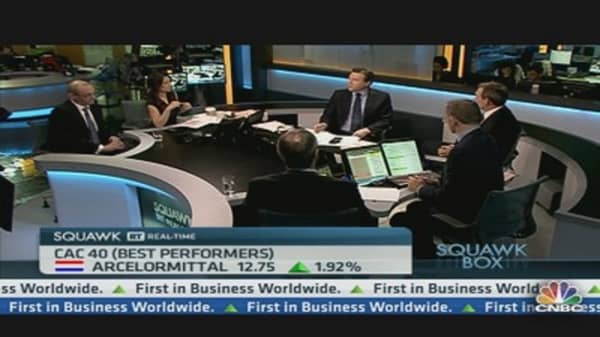Throw that crystal ball out — if you want to be a good investor you've got to think like a futurist just like Warren Buffett does, Michael Lee, author of a book entitled "Knowing Our Future: The Startling Case for Futurology", told CNBC.
Far from being mysterious and unknowable, futurist Michael Lee told CNBC that the future can be understood and predicted using math and scientific method. We just need to think ahead and think long-term, he said.
"The speed of change is so fast that our current knowledge always falls behind change," Lee said, adding that the way to combat this is to look ahead into the long-term future.
"People should think long-term, a good example of that is Warren Buffett. He's very successful as an investor because he thinks like a futurist."
"Warren Buffett looks at the stock market cycles and takes a long-term perspective. He looks at human needs," he added.
"One of our problems today is short-termism and we need to have a paradigm shift where we look long-range and take the proper scales of time into consideration," Lee told CNBC Europe's "Squawk Box" on Friday.
"I would like to buy into a business that I can predict how it will look 10 to 15 years ahead," Lee said, again citing Warren Buffett's Berkshire Hathaway portfolio.
"For example, Buffett's largest stock holding is Coca-Cola . People will be drinking that in 100 years time so we [as investors should] look at the underlying humanity and at the human needs, desires and wants [and] base business decisions on that.
"A lot of Buffett's portfolio is based on food, beverages and physical things that are not going to go away any time soon," he added.
Lee, who is also founding chairman of the World Future Society of Southern Africa, said it was important to be scientific in approaching the future. In his book, he draws upon prophetic predictions of the future that have been made by philosophers, mathematicians and social scientists from the French Revolution to the present.
"Drawing on laws of nature and laws of history, and integrating as much information as possible about a given society or system, it is possible to recognize patterns of time which will be completed sometime in the future," the foreword states in Lee's book.
"It's important to be scientific, scientific about the future, scientific about economics and the scientific method is the greatest tool ever invented by the human race," Lee told CNBC.
"If we want to sort out socio-economic crises that we face, we need to become scientific. The values of science are discipline, objectivity and being factual."
Citing the prediction made by American geophysicist M. King Hubbert, who in 1956 forecast peak oil production would follow a bell curve of peak and decline, Lee said it exemplified how politicians must not take a short-term view while in power.
"Hubbert's Peak" as it is now known, was realized when oil production reached 10,200,000 barrels per day (bpd) in the 1970s and declined to 5.822 million bpd the year 2000. Lee said politicians needed to think long-term for energy alternatives.
"Take, for example, tackling climate change, that's something that all politicians can agree on. Energy policies are crucial to the future of our world and we're moving from a fossil fuel-dominated era to more renewable energies."
"As the oil production cycles start to peak and decline you need to come in with alternatives to prevent economic slowdown. All systems are driven by energy, if you don't have the energy to drive the systems they slow down and come to a halt."
Lee's prediction for the 2012 presidential race? It would be a closely run contest and "could go either way."





